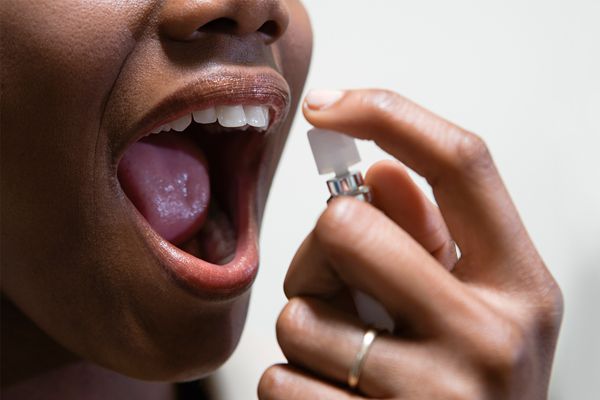Dysgeusia -- an altered sense of taste -- often leaves your mouth feeling as if you just finished a meal consisting of loose coins instead of steak and potatoes. A persistent metallic taste may seem like a good reason to worry, but try not to fret too much. There are several possible explanations, most of which are not a cause for concern.
One of the most frequent causes of dysgeusia is hormonal changes in the body during pregnancy, especially during the first trimester. The metallic taste usually dissipates when hormones stabilize during the second trimester, but there are ways to reverse the condition simply by consuming certain foods and drinks. Heidi Eisenberg Murkoff and Sharon Mazel, the authors of "What to Expect: Eating Well When You're Expecting," advise pregnant women to, "Combat heavy metal with acid. Focus on sour flavors (such as citrus juices, lemonade or foods marinated in vinegar -- assuming your tummy can handle them) that tend to increase saliva production, thus decreasing the bad taste in your mouth." Some prenatal vitamins can also cause a persistent metallic taste, so ask your doctor about switching vitamins to help return your taste buds to normal.
Advertisement
You also may notice a metallic taste if your sense of smell has recently been impaired. Smells and flavors are closely related, and nerve endings on the tongue can sense irritation within the nasal region. A metallic taste or sensation could be the result of a cold, nasal infection, runny nose due to allergies, sinusitis or nasal polyps [source: Danoff].
Read on for more reasons why your mouth might taste like a roll of pennies.
Advertisement


